Getting BYOD Right at Park House School
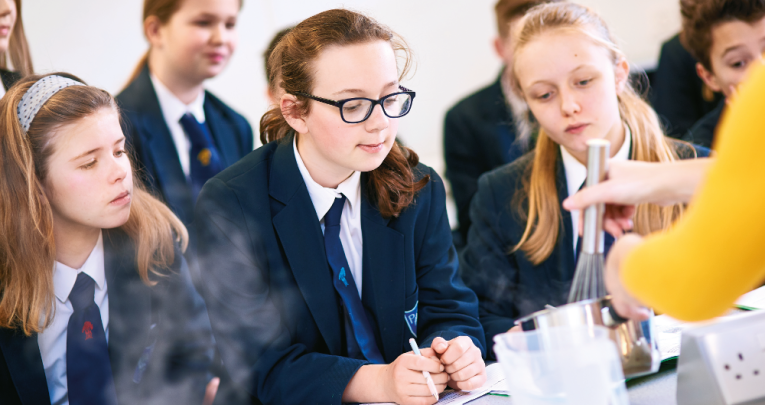
"I was resistant when BYOD was first brought in, and equally so when it was taken away. But I saw an instant improvement in wellbeing when we took phones out of the equation…"
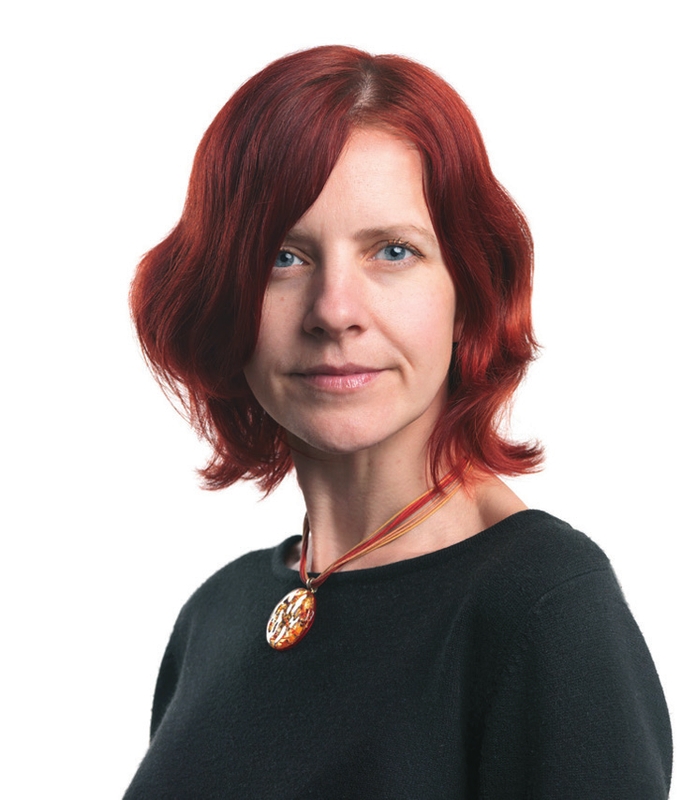
- by Helen Mulley

I’ve always felt that the cliché about ‘not judging a book by its cover’ would make a lot more sense if it suggested instead not rejecting a title solely by its cover.
After all, you can actually learn quite a lot about what you’re going to read by what the publisher has decided to print on the outside of it: what the author has decided to call it, for example; whether that writer is one of your favourites or not; an idea of genre; a few pointers as to the plot; and quite often, what other people who’ve read it thought about the experience.
Likewise, whilst it’s never wise to make assumptions about the full extent of teaching and learning that happens in a school based purely on the appearance of its buildings and grounds, there’s no doubt that environment has an important part to play in young people’s education – and every educational establishment is a unique ecosystem, the character of which visitors can generally start to get a feel for as soon as they pass through its gates.
In fairness, Park House School got a little lucky with timing – in that we visited the week after the ‘Beast from the East’ had forced it to close for a couple of days.
The snow had melted, the temperature had risen, and spring was having a definite attempt at fighting back, meaning that the Victorian country house around which the campus has been developed, and the mature parkland in which it’s set, were looking particularly appealing, with welcome sunlight hitting the brickwork, and even a few brave crocuses starting to bloom around the base of tree trunks.
Unusually for a secondary school, Park House’s buildings are almost all single-storey, and clustered into departments.
Timetables are deliberately organised to allow for five-minute changeovers as students move from one lesson to the next, which tends to involve exposure to the elements up to five times a day, in addition to breaks and lunchtime; something the value of which can be easy to overlook, given how standard it is for young people to spend from 8.35 to 3.20 or so without ever setting foot outside the neon-lit classrooms in which they are taught, and the often oppressive corridors that join them together.
Park House may not be an extravagantly funded, swanky new-build – but it is definitely a pleasant and welcoming space in which to spend time. Happy, even.
Consistency and change
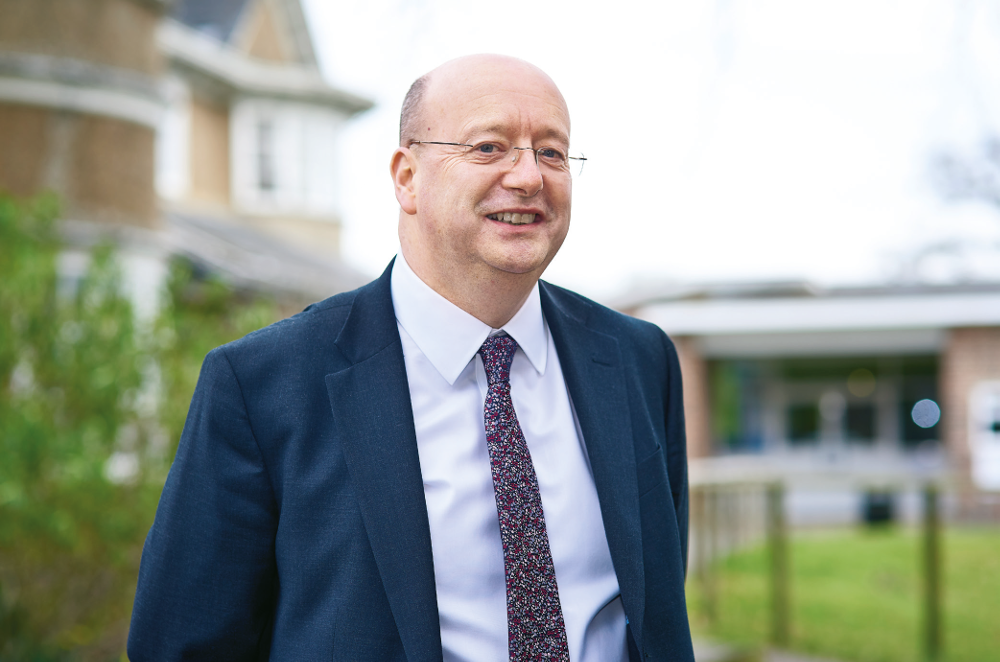 For Derek Peaple, taking up the post of headteacher here 15 years ago was rather like coming home.
For Derek Peaple, taking up the post of headteacher here 15 years ago was rather like coming home.
As a child he lived and was taught 20 miles away, in Reading – however, as a keen sportsperson throughout his life he has vivid memories of taking part in events, especially athletics and cross country, at Park House in the 70s.
The fondly-recalled croquet lawn may be no more; but in many ways the school still looks now very much as it did then – so, what changes has Derek overseen during his time in charge?
“Culturally, there has been a significant amount of consistency,” he observes as we sit with cups of tea in his office before our planned learning walk.
“I inherited it as a sports college – one of the wave, in 97/98 – and we still have that identity. But it’s not about winning cups and trophies (although they’re nice, naturally); it’s about values and opportunities. We’ve articulated our values around those of the Olympics and Paralympics – Excellence, Inspiration, Courage and Determination, Friendship, Respect and Equality – and they are very much what drives the school.
“We are proud of being at the heart of our community, and we don’t just have those values on our prospectus and displays – we live them, and we encourage our students to live them, too.”
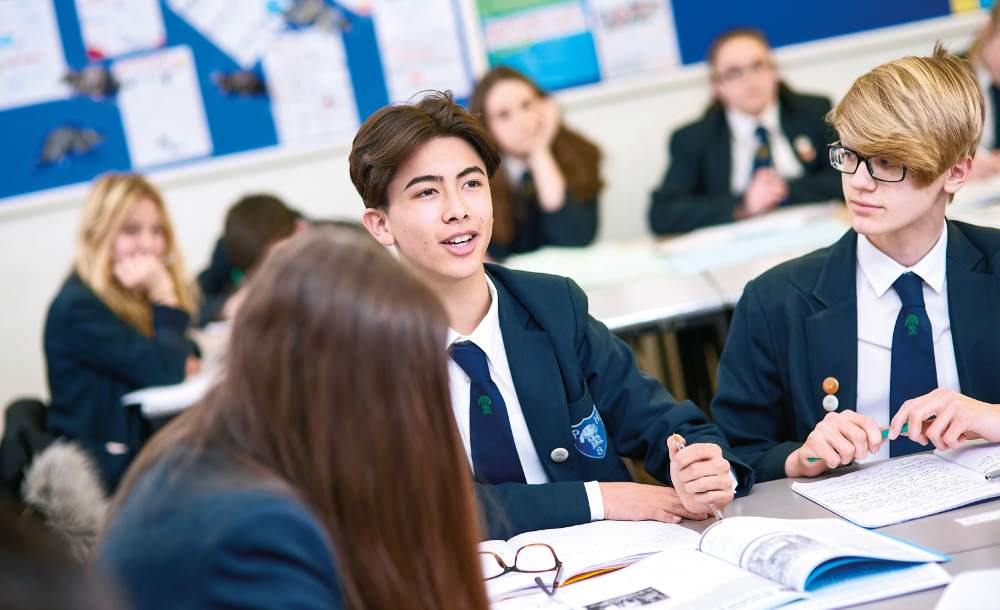
Like every school, Park House has, of course, seen educational change over the decades. Derek’s leadership style is responsive, but not reactive; enabling adaptation and staying at the cutting edge of learning developments, while keeping a strong focus on tradition and the community.
A key example of this is the school’s mobile devices policy, which is very much a work in progress – and transparently so. “When I first arrived, having a mobile phone in school was as close to a capital offence as you could possibly imagine,” explains Derek, with a wry smile.
“The situation evolved to the point where phones were permitted in bags, as long as they remained switched off – and then we started researching into the implementation and impact of various BYOD schemes. After all, the way that young people access information has changed, and it seemed right to us that this should be reflected in our approach to the use of mobile devices as part of the learning process.
“We developed a set of guideless linked with our values, especially respect, and after an initial trial period we could see that in many ways it was indeed conducive to learning, and having a positive impact. At the same time, though, we had to be aware of our responsibilities around keeping young people both safe and happy; and there were clear issues arising to do with social media in particular. There’s educational disruption, which is generally how you end up with positive progress… and then there’s plain old disruption, which it’s our job to manage and minimise.”
Creative approaches
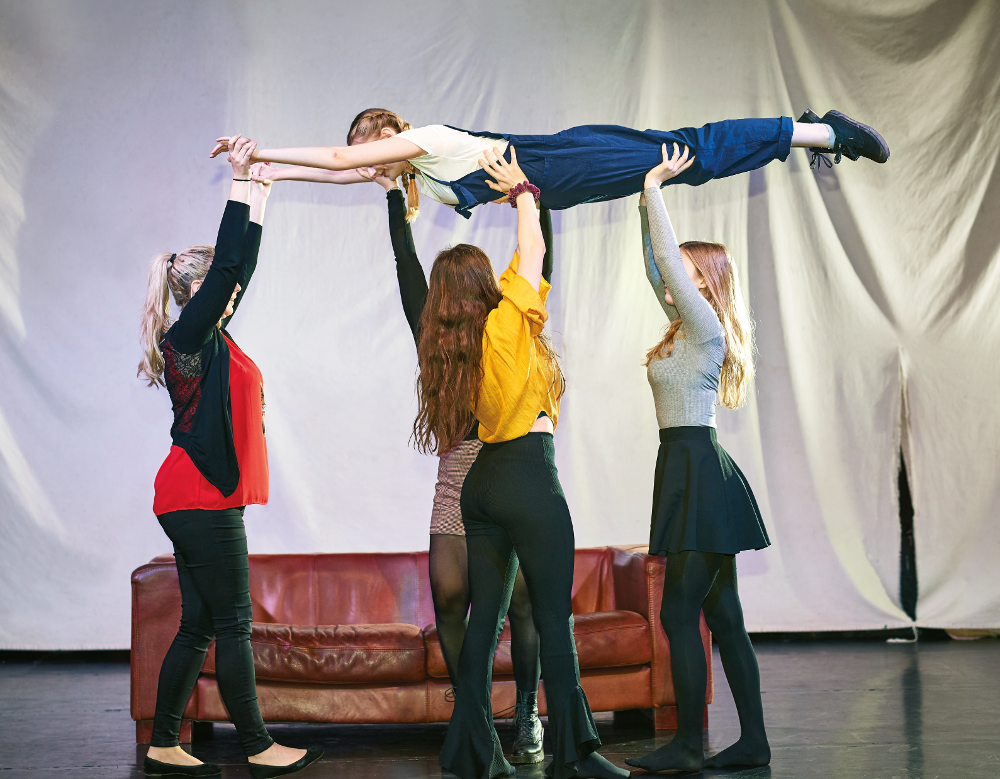 As a result of this kind of reflection, when we visit the school is a few weeks into a moratorium on mobile devices, while the SLT explores the idea of ‘negative disruption’, and puts together a plan for supporting youngsters in understanding how to moderate their online behaviour.
As a result of this kind of reflection, when we visit the school is a few weeks into a moratorium on mobile devices, while the SLT explores the idea of ‘negative disruption’, and puts together a plan for supporting youngsters in understanding how to moderate their online behaviour.
Posters explaining the previous guidelines can still be seen in classrooms, alongside notices reminding students that, for the time being at least, phones are now forbidden on the premises.
“I was resistant when the BYOD was first brought in,” confesses Damian Crabbe, assistant head and science teacher, when I ask him about these potentially conflicting messages as he shows us around.
“And then I was equally resistant when it was taken away! But we need to find a balance. And I have to say, I saw an instant improvement, not in behaviour exactly, but in learners’ wellbeing, when we took phones out of the equation. I have no doubt we’ll find a way to make it work, but the technology is developing so quickly, as is the way people interact through it, that it’s important we are measured in the way we reintroduce it.”
Certainly, in every lesson we visited during our day at Park House, we saw young people focused on their learning; contributing confidently and respectfully to discussions; genuinely curious about the topics they were covering; and, particularly in the case of the drama and textiles sessions we witnessed, demonstrating remarkable creativity and independence.
The school may be officially a sports college – but it could just as easily be recognised for its focus on a vibrant arts education for all students, or for its engagement with technology (it’s a centre of excellence for computing).
For Derek and his team of staff – a significant number of whom are themselves former pupils of the school – what it comes down to is making it a clear priority to see every young person as an individual; to identify what is most likely to help that young person develop into a fully rounded, successful and happy adult; and to ensure that there is every opportunity for him or her to excel according to his or her own potential.
Individual excellence
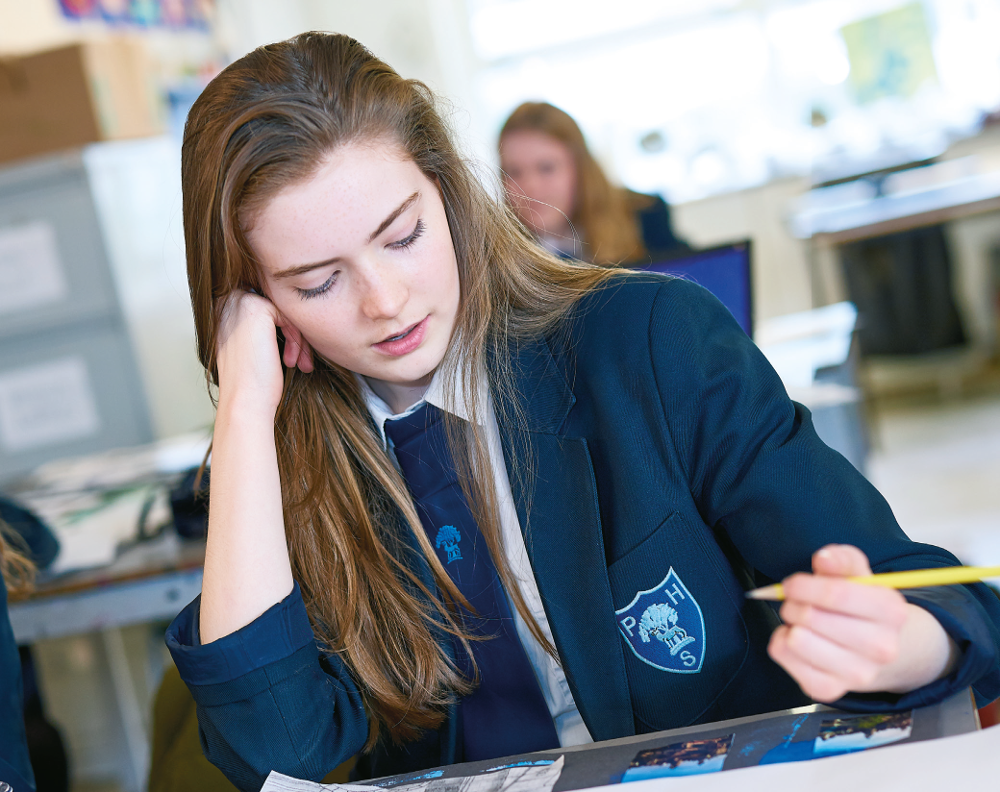 And at Park House, opportunities are everywhere, and for everyone.
And at Park House, opportunities are everywhere, and for everyone.
From the Wellness Centre, and post-16 football and rugby Academy pathways, to the impressive annual productions that are presented in a local theatre with professional facilities, to the school Band, Orchestra and Choir, to a student voice system that genuinely allows young people to be heard, to contribute and to lead – there really is every chance for each young person to find a space in which to shine.
Moreover, there is every encouragement for learners to connect more profoundly with the community, both local and global.
International links that are always being explored – currently the school is working closely with schools and universities in Tokyo, around the 2020 Olympics; there are weekly Skype sessions with schools in Japan; students can opt to learn Japanese; and there are plans to take a giant sports and cultural out there in 2019.
“We like to take an approach where we work with individual children and develop a special relationship,” confirms deputy head Cate Robinson-Slater.
“So if a young person is not necessarily very confident, we will look for an opportunity to engage that young person in something they want to do; to celebrate and build their confidence.’
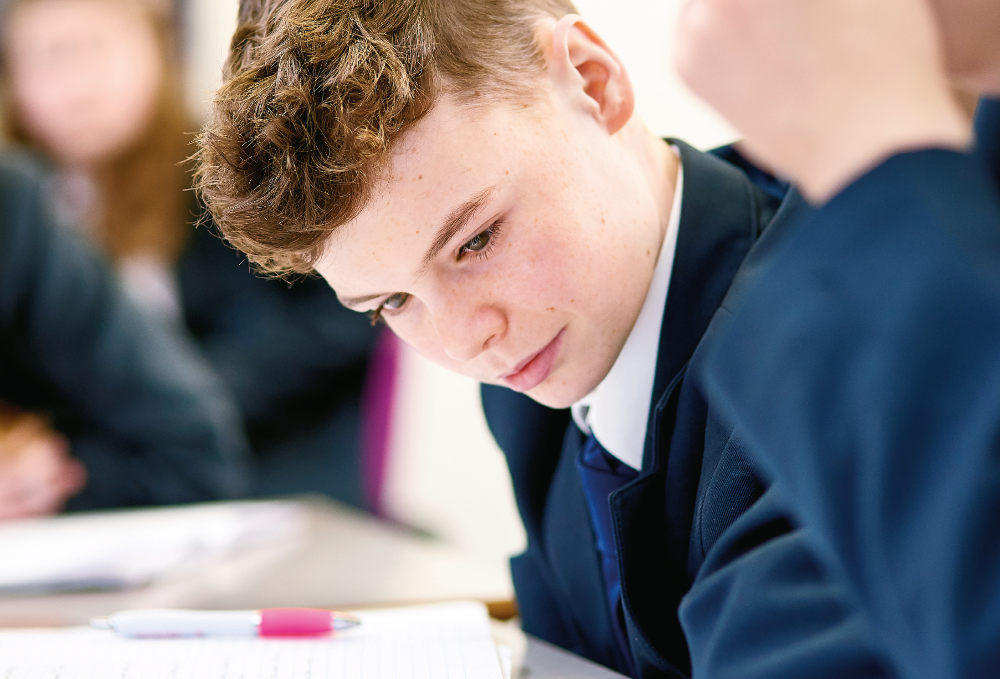
It’s this ethos, clearly evidenced in practice over many years, that made Park House the obvious choice for Achievement for All when it was looking for a school to lead the South-Central Hub of its brand new Multi Academy Trust, which launched in April this year.
“If your values are strong, and well embedded, it becomes a question of how to amplify that,” says Derek.
“Success for every student is part of Park House’s DNA, and AfA’s, too – we’re already philosophically and ideologically aligned, and so moving towards a more formal partnership feels like a completely natural development for us. Unsurprisingly, when you look at schools, it’s promoting wider skills that tends to lead to great outcomes. That’s what we’ve always done at Park House; and we’re looking forward to extending that more widely, as part of the Achievement for All Education Trust.”










